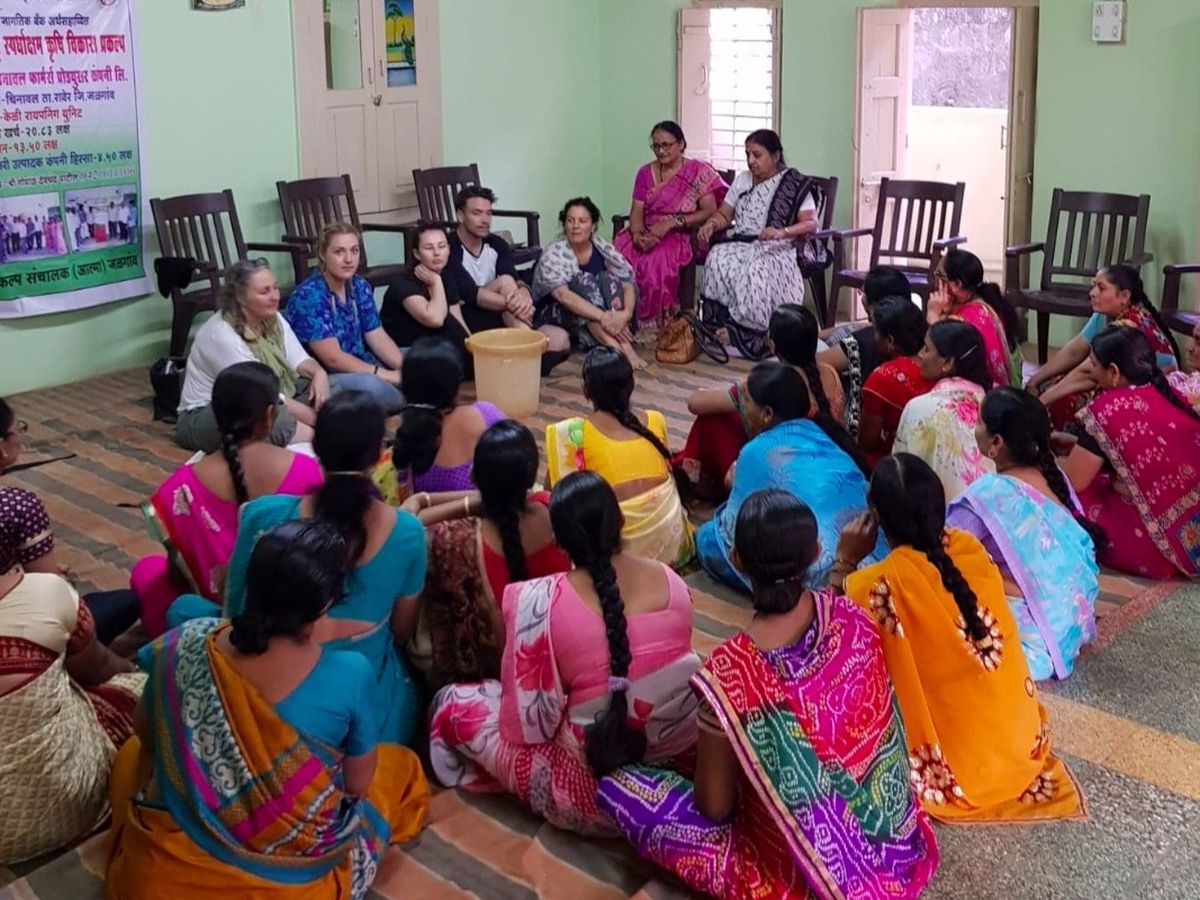- J
- R
- U
 Our project is a student lead initiative that developed after a combined Social Work, Outdoor Education and Early Childhood Education study tour to the remote tribal area of Pal, which is a rural village in the north-west rural regions of the State of Maharashtra, India. This study tour was funded by the New Columbo Plan (NCP) and the NCP’s ongoing support in 2019 will ensure ongoing student involvement in Pal in the coming years.
Our project is a student lead initiative that developed after a combined Social Work, Outdoor Education and Early Childhood Education study tour to the remote tribal area of Pal, which is a rural village in the north-west rural regions of the State of Maharashtra, India. This study tour was funded by the New Columbo Plan (NCP) and the NCP’s ongoing support in 2019 will ensure ongoing student involvement in Pal in the coming years.During our field research in Pal, we were informed about the many barriers to menstrual hygiene management that rural women experience on a day to day basis. These barriers lead to poor health, and issues with both safety and access to education. Over the course of the study tour, passionate and well-informed conversations ensued between the three La Trobe student cohorts about menstrual management underwear and what positive outcomes might be possible.
Using a community participatory approach, we shared our vision with a village elder, Snehlata, who had been searching her entire academic career for a practice that was environmentally sustainable, affordable and offered the freedom for girls and women to continue at school or working in the fields all day long. Snehlata says “What we have together was meant to be. I feel it in my heart. This meeting between the five of us was pre-decided by the universe. We are weaving our thoughts together and I know strongly it will be a success”.
Within 24 hours of meeting Snehlata we held our first meeting with members of four women’s Self-Help Groups (SHG) from the region surrounding Pal. The I am Woman: Rural India Project was born.
There was a positive reception from the SHG who coined the term MCP; Menstrual Cycle Pants (MCP) and immediately saw the potential for MCP’s use in other aspects of women’s hygiene as well as future accessibility of MCPs in India.
The primary focus of this pilot project is the purchase and distribution of MCPs to women in four SHGs in rural villages around Pal. After conducting qualitative research on the efficacy of MCPs in this context, we will use this data to design subsequent phases of the project. With the continuation of the community participatory approach being our priority, we will then work in consultation with the SHGs to support young girls boarding in high schools of Pal. This will likely involve a second distribution of MCPs and an education campaign around menstrual hygiene.
We share the local women’s enthusiasm that this project has the potential to create positive change in their lives and we are excited to share the opportunity to play a part in this with you.
Kind regards,
The I Am Woman: Rural India project team.

